You should consult a vet to find out whether to wait a while before having the animal tested again, or to have the dog vaccinated again. Please note that the wait begins as the day when blood sample is taken for the test which reveals antibody levels clear the standard.
Frequently Asked Questions
Here you’ll find answers to the most common questions pet parents have about Mitral Valve Repair surgery. Please review details carefully to ensure you have the most accurate information regarding surgery and logistics.
What is the goal of surgery?
The goal of the surgery is to prevent heart failure and prolong their survival time. The goal is to attain mild regurgitation without heart enlargement, keeping them asymptomatic. The hope is to reduce the medications the dog is currently taking, depending on the actual disease progression. Japan says the hope is to extend their lifespan four years or longer.
Where is surgery available?
Dr. Masami Uechi performs mitral valve repair at JASMINE Clinic in Yokohama, Japan.
Dr. Dan Brockman performs mitral valve repair at Royal Veterinary College (RVC) in Brookmans Park, United Kingdom.
What is the cost of surgery?
This varies depending on the location of the surgery, and prices are subject to change at any time.
As of July 2018, surgical cost at the JASMINE clinic are $18K USD (depeding on the current exchange rates). Plus travel, hospital, pre and post op care, consultation fees and any additional extended aftercare cost.
The RVC is currently charging a total of £17,500 GBP for surgery which includes the deposit, surgical and aftercare cost. Please keep in mind travel cost are additional separate costs for each location. Each clinic will send you your contract with detailed payment terms and conditions.
What are MVR Surgical Complications
Perioperative surgical complications
We understand how scary these risks sound, we encourage you to speak to the clinics directly regarding these possibilities and your concerns before considering surgery. When you arrive at each center the doctors again go over the risks with you and have you sign acknowledging, so they know you are completely well informed of the risks.
Patients with CHF associated with severe lung problems have a higher risk of mortality during surgery from surgical complications or anesthesia-related issues. Some patients may require prolonged respiratory support by mechanical ventilation.
Postoperative Congestive Heart Failure
The heart may lose contractility following open-heart surgery. This may occur from surgical manipulations induding temporarily stopping the heart, incision and placing suture materials. Following the mitral valve repair surgery, tricuspid regurgitation may temporarily become prominent. The Tricuspid valve is located on the right side of the heart and severe tricuspid regurgitation may lead to retention of fluid in the abdomen.
Postoperative Pulmonary Dysfunction
Respiratory complications are caused from: hemorrhage in the chest pain, reduced contractility of the heart, reduced lung function (collapsed lung lobes, pulmonary embolism), diaphragmatic paralysis, and airway obstruction. Early detection of the problem is necessary for prompt treatment
lntracardiac Hematoma
lntracardiac hematoma may develop during or after the surgery. It may contribute to the mortality or it may reduce in size with or without surgical intervention to drain the hematoma. The cause of the hematoma is still unknown.
Hemorrhage
If anticoagulation effect is insufficient, postoperative prolonged hemorrhage from the surgical site may occur.
Anemia and Low Platelet Count
Mitral valve repair surgery is performed with cardiopulmonary bypass. Anemia is a common postopertaive clinical finding from dilution effect of blood during the surgery. Low platelet count may also occur after the operation and its common symptoms include bruising of the skin. Anemia and low platelet count usually improve few days after the surgery, but some patients may require blood
transfusion.
Blood Transfusion Reaction
Blood typing and cross-matching are always performed prior to the operation, However, blood transfusion reaction can occur in some animals.
Thromboembolism
Postoperatively clots may form in the heart chambers or blood vessels and can lodge anywhere in the body. Symptoms of blood clots depend upon their location and size. Thromboembolism is a significant cause of morbidity and mortality.
► Neurological signs (coma, seizure, paralysis)
► Congestive heart failure from acute myocardial infarction
► Respiratory failure from pulmonary embolism
► Peripheral arterial embolism (motor dysfunction and necrosis)
► Pancreatitis (poor appetite, vomiting, diarrhea)
Possible Adverse Effects on Organ Function
The heart is temporarily stopped during the cardiopulmonary bypass, organs such as the liver, kidneys and pancreas may not receive adequate blood flow and may cause adverse effects on organ function
postoperatively. Pancreatitis is one of the common complications from thrombosis or poor perfusion. Symptoms include poor appetite, vomiting or dianhea and severe cases of pancreatitis can be fatal.
Arrhythmia
Arrhythmia (irregular heart beat) may occur during and after the surgery. Usually arrhythmia disappears after 1 to 2 days, however in rare cases the patient requires antiarrhythmic medications or pacemaker.
Diaphragmatic Paralysis
Paralysis of diaphragm occurs following incision into the left chest cavity. Rapid, shallow breathing, and shortness of breath can occur temporarily and spontaneous resolution is common.
Infection
Postoperative infections may occur from a weakened immune system.
What is the latest age recommended for surgery?
13 years, Although it’s at each clinics discretion to take on older patients.
Is it best for me to make contact by email or telephone?
Email is best. The doctors prefer to communicate with your cardiologist directly to ensure all necessary files are transferred to them for review at once, for candidacy. Have your doctors CC you on all communications. Contact information is provided below:
You may also email us at any time at Support@MightyHeartsProject.org or connect with us on our Facebook Community page to get answers to any preliminary questions you have before engaging the clinics.
What is Dr. Uechi’s, Dr. Brockman’s and Dr. Poppy’s current success rates?
(Dr. Masami Uechi)
Dr. Masami Uechi has done sugery on thousands of dogs over 16 years with a discharge rate of 97% which Masami considers his success rate since 2022. The three percent unfortunately are complications following surgery.
Additional metrics about the surgery can be found in this blog article.
[9]: /s/062_SmallAnimal_01_04_Uechi.pdf
(Dr. Dan Brockman)
Dr. Dan Brockman has told us his current success rates are 90%. He has performed surgeries on about 100 dogs as of 2022.
At what stage is surgery recommended and most beneficial?
The most ideal time for surgery is when a dog is at advanced stage B2, when the heart muscle is still at its strongest and the dog is not weakened by symptoms of congestive heart failure. Dogs can be operated on at any point beyond Stage B2; however, the likelihood for complications grows as the dog advances to Stage C and Stage D. Advancement beyond Stage B2 causes the survival rates to reduce slightly.
What are surgical complications your dog can face once home from surgery?
Dogs can have minor side effects related to Plavix, the blood thinners prescribed to prevent blood clotting after the surgery. The incision site should be monitored to ensure no irritation is occurring from harness worn by the dog. There have been past reported cases of minor infection due to this irritation. Beyond that, any concern should be addressed with your veterinarian and/or cardiologist at home.
What are needed tests for pre-screening and qualification for surgery?
A sample listing of the tests are enclosed below:
Brief past medical history and known current diseases
Physical Examination
Blood Pressure (NIBP)
ECG
Blood Tests – CBC, Biochemistry test, Electrolytes, C-Reactive Protein
Chest x-rays (3 views)
Echocardiography
Abdominal ultrasound
SDMA
Urinalysis and further kidney tests if indicated
Full coagulation profile: (PT,APTT, Fibrinogen, ATIII,FDP,ACT)
Blood Type
Contact the clinc for further details.
For Japan, do certain documents have to be submitted for advance notification purposes? Where should the notification be submitted?
Yes download the ‘Notification for importation of animals’ form from the Animal Quarantine Service website found HERE. Once you have completed all the necessary sections of the form, you should email it back to the Animal Quarantine Service which has jurisdiction over the intended air/sea port of arrival no less than 40 days before travel.
For Japan, can I submit advance notification even if our flight number has not been determined?
You can submit advance notification. Please enter ‘to be determined’ in the column of ‘Name of scheduled vessel (or flight No.)’. After the flight number is finalized, please submit ‘Modification on Notification’ to Animal Quarantine Service to which you submitted advance notification. The form can be found HERE.
There have been changes to my import plans for Japan since I submitted the notification. What should I do?
Download the ‘Notification of changes’ form HERE from the Animal Quarantine Service website. Once you have completed all the necessary sections of the form, you should email it to the Animal Quarantine Service which has jurisdiction over the intended air/sea port of arrival.
Japan AQS explains why it is necessary for animals to be immunized against rabies two or more times.
In some cases, a single rabies vaccination does not result in sufficient immunity (antibody levels). It is therefore necessary for animals to be vaccinated two or more times in order to ensure sufficient immunity.
Any immunization against rabies carried out prior to the implantation of the microchip will not be accepted. Please be sure to have the animals vaccinated twice and tested for antibody levels only after the microchip is implanted.
For Japan any immunization against rabies carried out prior to the implantation of the microchip will not be accepted unless you meet theese requirements. Please be sure to have the animals vaccinated twice and tested for antibody levels only after the microchip is implanted.
However, AQS regards rabies vaccination carried out prior to the implantation of the microchip as the first vaccination if you have the certificate issued by the government agency that:
The animals have received rabies vaccination prior to the implantation of the microchip
The results of the blood test after the implantation of microchip is equal to or greater than 0.5 IU/ml.
But you need to do more blood test after second-rabies vaccination, except for the case of doing blood test at the same day as first-rabies vaccination after implantation of microchip. In this case, please contact your nearest Animal Quarantine Service or look at 1 of “Newly Approved Rules Effective as of April 15, 2010” which is Attachment of “Guide to importing dogs, cats and other animals subject to animal quarantine from regions other than the designated regions into Japan”.
For Japan, are vaccinations and certificates of immunization against any diseases other than rabies required?
No an animal will not be denied importation or given a longer quarantine period on the grounds that it has not been immunized against a disease other than rabies.
Japan AQS explains their rationale behind the measurement of antibody levels and the 180-day wait.
Antibody levels are measured in order to confirm whether or not the animal has developed immunity to rabies. The reason for the wait is to make sure that the animal has not contracted rabies prior to developing immunity to it as a result of immunization. 180 days corresponds to the incubation period for the disease.
Japan, What should I do if my dog has been vaccinated but the antibody levels do not meet the required standard?
Still have questions? We can help!
Get in touch via the contact page or join our MVD Community Facebook Group. We look forward to helping you navigate MVR surgery.
Mighty Hearts Project is a 501(c)(3) non-profit organization that supports dogs with Mitral Valve Disease through surgical intervention.
Get Started
Additional Links
Disclaimer: The information provided on the website is for educational and informational purposes only and is not meant as a substitute for advice from a trained veterinarian or any other medical professional. Please do your own research and contact each clinic performing MVR surgery for the most up to date information.








